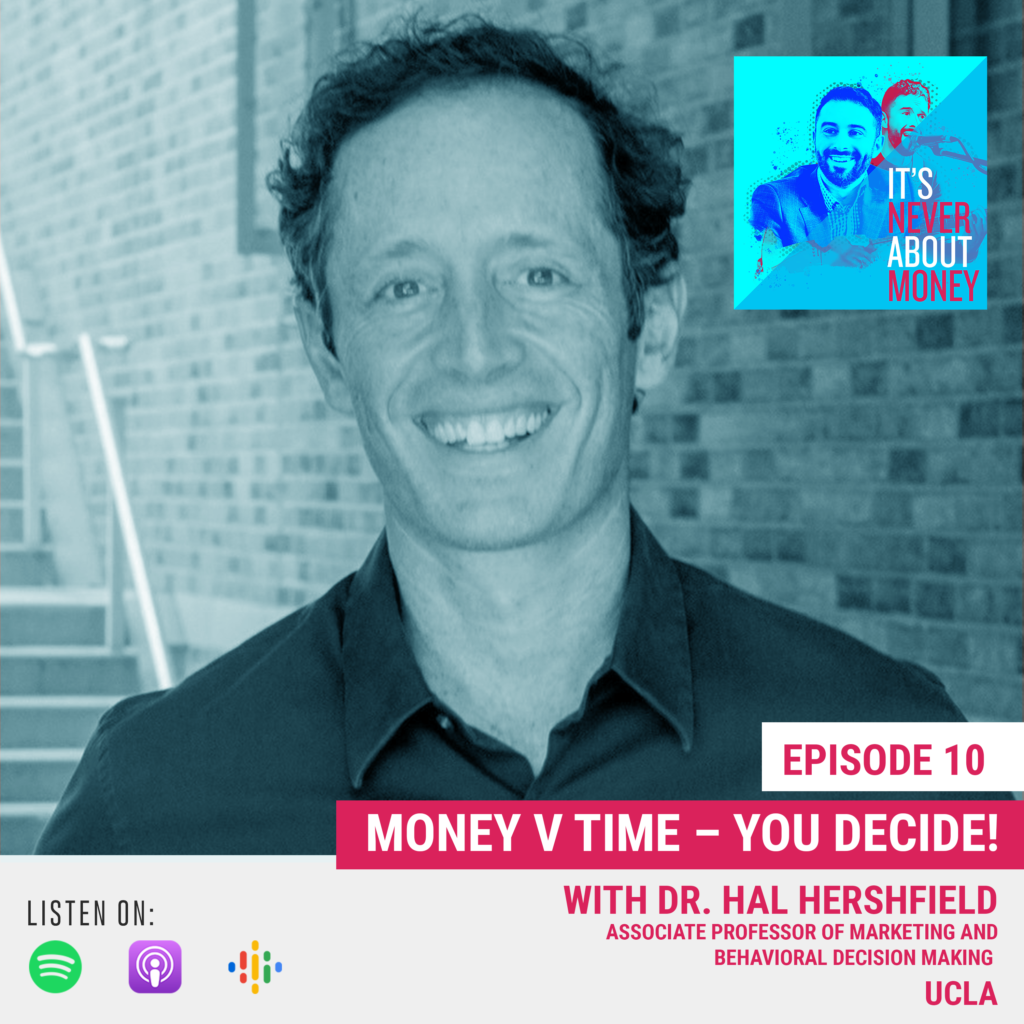Hal Hershfield is an Associate Professor of Marketing and Behavioural Decision-making at UCLA.
His research surrounds not just how we make long-term decisions, but how we can help ourselves make better long-term decisions—by our own definitions, at least—and how we weigh up the decision of time against money.
It’s something we’ve all struggled with at some point. We have these trade-offs of time versus money: do I save this money for a future goal, or opt for instant gratification in the time I’m spending now? Would I rather have more time, or more money at my disposal?
And often we opt for the money, because it’s quantifiable. It feels concrete. Time, on the other hand, is something we feel we can always make up later. So we put things off until later, be it chores, work, or even planning for our future.
As we all know, this doesn’t serve us well. And there’s a reason for that.
According to Hal’s research, the brain sees the future self as another person quite disparate to who we are now. That’s why there’s such a disconnect between what we want in the short term, and putting in the time to help out our future selves. To our brains, we’re helping a different person.
But to achieve any modicum of success, be it personal, professional, or however we define it, we need to make that connection. They’re us. Their success is ours. Their business’ success is our business success.
As Hal eloquently states, we’re a collection of separate selves over time. We become different people over time; we change.
So the lesson isn’t that we need to prioritise the future self, per se. The lesson is that we need to figure out ways to provide more compassion for our various selves over time. We need to determine what we can put in place now, in the coming days, weeks, months, to bring balance to these selves, and help those versions of ourselves out.
It’s all about spending our time in the right way.
At the end of the day, like most of us, Hal defines success not in terms of money, but in terms of freedom. If you know where you want to be, and how you want to spend your time, then being able to act on that, and spend your time the way you want to—that’s success.
It’s a comforting thought that, while a researcher and leading voice in this subject, Hal admits that he doesn’t always spend his time in the most productive ways. It’s human nature, after all. But the important thing is that we don’t beat ourselves up about it.
It just takes practice. Practice our future selves will thank us for.
To hear the full conversation, listen to episode 10 of It’s Never About Money.







